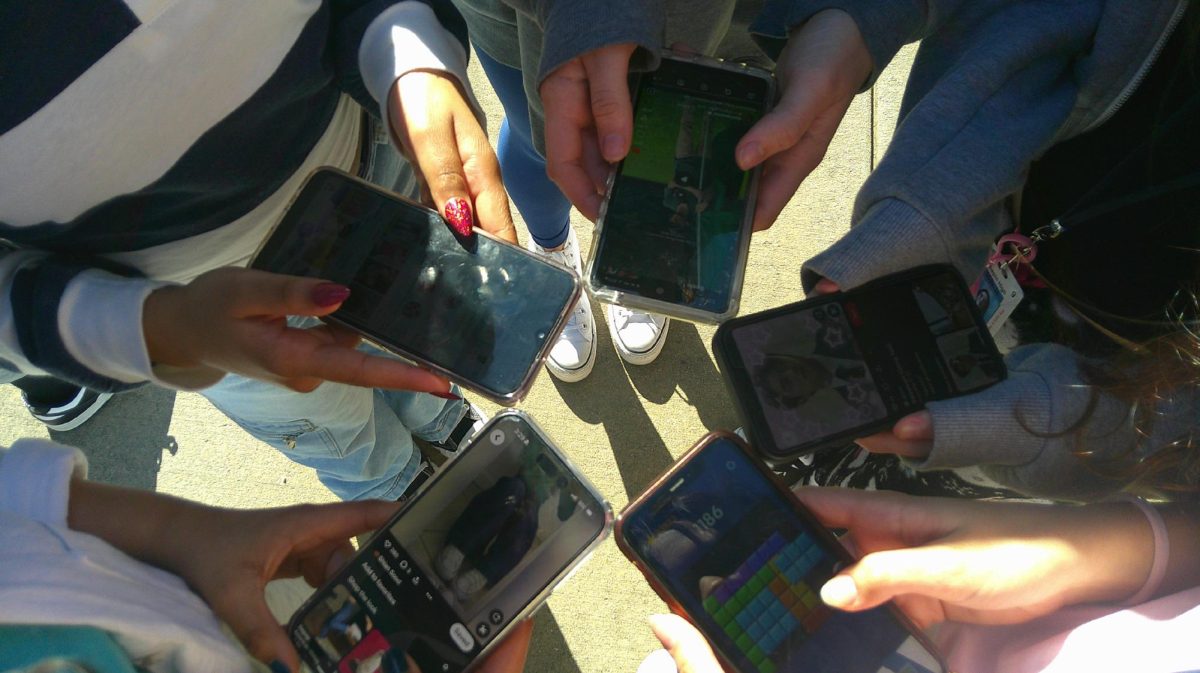Judgments dominate high school behavior. The U.S.is similarly judged in a global context. The outcomes are usually negative. Jordan, Palestinian territory, Egypt, Turkey, Pakistan and Lebanon all have over 70 percent unfavorable attitudes towards the U.S. Europe and Asia are well over 20 percent. The three most common stereotypes about the American population include being wasteful, greedy, and ignorant.
China and India are becoming superpowers. Dean Rust, former secretary of state, predicted “. . . the world cannot support another U.S. . .” Competition for resources is increasing and not all will survive if American trends are imitated. “I have no idea, and the pressure that India faces as just the population. . . if we don’t get on a global scale we can actually do more damage to ourselves. It can’t be a global relationship where we [U.S.] sit down and we set all the parameters,” says U.S. History AP/CP teacher Anastasia Sease. A nation’s security is based on global leverage. Jeopardize that and compromise occurs. Americans, lacking historical context, may find change difficult.
“They [foreigners] think we are all rich, and maybe we are,” says U.S. History and Sociology teacher Bill Sommerville. Almost half of the world lives on less than 2 dollars a day. “I think sometimes some of the wrong things get reported, they hear about the extravagances and everybody views us that way”-Sommerville. The media glorifies the Kardashian wedding, and the reality T.V. show Jersey Shore. If these far cries from reality is what the rest of the world is shown, it is no surprise they think us wealthy. “They live in awe of our convenient lifestyle.” says senior Caitlin Kitchens. 15.1% of Americans are living in poverty. Most of the time the poor do have air conditioning, a car, and a T.V., but lack less obvious amenities such as health care.
Since the 2003 invasion of Iraq, 4,421 Americans have been killed in Operation Iraqi Freedom. Eight years later, a democratic Middle Eastern government has yet to be successful, and the Taliban still has power. Both Osama Bin Laden, former leader of Al Queda, and Saddam Hussein, former dictator of Iraq, have been removed. Is it because of American ignorance that we are still involved in Middle Eastern affairs? “The way in which we reacted to that [9/11] was important. You can see the shift, it was like, we defended our country, and rightfully so, into Afghanistan, and when the decision was made to make that a two front war you could see the attitudes shift immediately. I mean you went from calling it Operation Freedom to Bush’s war.” -Sease. A western mindset based on Christian ideals cannot replace a deep rooted Islamic tradition. Home support for the war has decreased, and global sentiments do not differ. “The war in Iraq is not very popular in most European countries, even if the government of the country supported U.S.efforts, populations of countries are not supportive of their government’s support,”says science teacher, Crispulo Issiminger.
How Americans react on a global level reflects cultural misunderstanding. “The U.S.tends to force its elitism on other nations, for example when the U.S. went to Southeast Asia and attempted to force westernization,” says senior Sawyer Tedder. America is a soapbox for democracy. The Cold War, the Vietnam War, and now the War on Terror all implement the same strategy; infect the world with democracy. Western culture is infused with a righteous spirit.
“I think it’s a cultural thing, we think we are entitled to something but haven’t earned it,” says Allison Layton, senior. Expectations that one country will change at the expense of another are not appreciated.
“We, in America, we expect them to speak English, we feel like the language world revolves around us,” stated Summerville.
A superpower nation does have significant leverage, but it does not erode the value of other nations.
“People are different; they are not wrong, just different,” added Summerville.
Despite negative assumptions about the U.S., stereotypes are not strictly an American phenomenon. The French are lazy artists, Asians can’t drive, Italians associate with the Mafia. Differentiating bias from fact reveals more similarities than differences among people from all nations.






